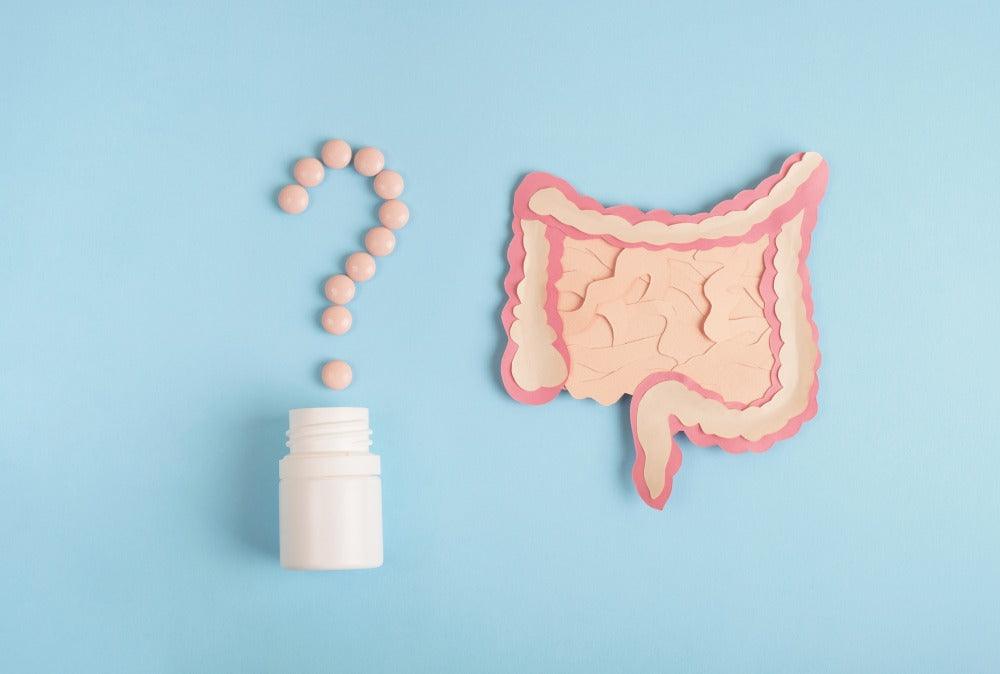You've heard of prebiotics, probiotics, and postbiotics, but what differentiates them? You might understand that the "biotics" family is helpful in improving your overall gut health and can contribute to a stronger immune system, but what role do they play, and what defines their ability to do so?
Let's take a closer look at what defines pre, pro, and postbiotics, the health benefits tied to each, and how to incorporate them all into your diet to establish a healthy gut microbiome.
Prebiotics vs Probiotics vs Postbiotics
Prebiotics are defined as the main food source for your gut's microorganisms. According to the Cleveland Clinic, "probiotics need to bypass digestion and make it all the way to your colon. There, the microorganisms metabolize and ferment the prebiotics to survive. This metabolism and fermentation process is beneficial to your gut health because it creates a variety of other byproducts that help you in a number of ways."
Prebiotics are high-fiber foods like dandelion greens, garlic, onions, leeks, asparagus, and bananas, among many others. You can also take a prebiotic supplement.
Probiotics are a mixture of live bacteria and yeast that lives within the body, and in order to thrive, they feed off of prebiotics. Probiotics generally consist of bacteria like Lactobacillus and Bifidobacterium, or yeast like Saccharomyces boulardii. These different types of bacteria in the gut function by helping the body digest food, eliminate cells causing disease, and much more, as explained by the National Center for Complementary and Integrative Health.
Probiotics can be found in yogurt and other fermented foods like kimchi and sauerkraut. You can also find probiotics in topical treatments and beauty products, or take them as a daily supplement.
Postbiotics are the bioactive compounds the probiotic bacteria produce when they consume prebiotics. Healthy postbiotics include vitamins B and K, amino acids, antimicrobial peptides, and short-chain fatty acids. These nutrients work together to intervene with the growth of bad bacteria, while simultaneously helping good bacteria thrive inside the body.
"When probiotics ferment prebiotics, it produces by-products that are coined the term postbiotics," Wong shared with the Vegetarian Times. "Postbiotics can include many different products including metabolites, short-chain fatty acids (SCFAs), microbial cell fractions, functional proteins, and others."
In summary, prebiotics are the food probiotics feed off of to contribute to a healthy gut. Post biotics are the aftermath of the combination of pre and probiotics that continue to work to create a healthy gut microbiome.
Health Benefits of Prebiotics vs Probiotics vs Postbiotics
On the surface, there are individual health benefits to prebiotics, probiotics, and postbiotics. Prebiotics promote the growth of good bacteria in the gut, which can simultaneously tackle digestive issues and encourage a strong immune system. Probiotics are essential for growing good bacteria, which can help your body better digest food, promote cell growth, enhance your immunity, and much more. And postbiotics continue to slow the growth of bad bacteria after pre and probiotics have been digested.
But the main point to remember when comparing prebiotics vs probiotics vs postbiotics is not how they can benefit the body on their own - it's more about how they work in tandem to produce a powerful result.
Prebiotics are beneficial because they're the food that probiotics need to thrive. Without prebiotics, probiotics can't work to create that healthy gut environment that your body needs for a healthy digestive tract, immune system, and other physical and mental functions. Probiotics are healthy bacteria that create a strong gut microbiome, while prebiotics are necessary to promote the growth of the good bacteria. Without each other, a strong gut microbiome is difficult to achieve.
And without prebiotics and postbiotics, there's no opportunity to produce postbiotics.
Should I Start Supplementation?
Even if you incorporate more fermented foods into your everyday diet, supplementation can be a great way to feed off of that foundation and meet the requirements your body needs to thrive. Consuming a prebiotic or probiotic supplement like Nella by FitBiomics can be the perfect way to set your gut's microbiome up for success.
Nella is a daily probiotic for men and women that promotes a healthy and diverse gut environment. When you take better care of your gut, you'll notice improvements in both physical and mental functionality, which can ultimately lead to enhanced immunity, metabolism, nutrient absorption, mood, energy, and more.
Within days, the probiotic strains of Nella populate your microbiome and within weeks you'll notice a change in your digestion. After consistently taking Nella for months, you'll notice changes in your sleep, energy levels, and digestion, leading to a much happier and healthier lifestyle.
Ready to make a difference in your gut microbiome? Shop Nella by FitBiomics today.
WRITTEN BY: Marina Santiago, PhD
ABOUT THE AUTHOR:
 |
Dr. Santiago has a Ph.D. in Chemical Biology from the Microbiology and Immunobiology Department of Harvard Medical School, but she has been fascinated by microbes and microbial communities for as long as she can remember. She works as an independent R&D strategy consultant and helps companies create and use evidence-based frameworks for making strategy decisions as well as helping them launch new programs or initiatives. Dr. Santiago is also passionate about fitness and the outdoors. In her free time, she enjoys running, hiking, and backpacking very long distances, as well as slowly getting better at yoga, Muay Thai, and Jiu Jitsu. |

